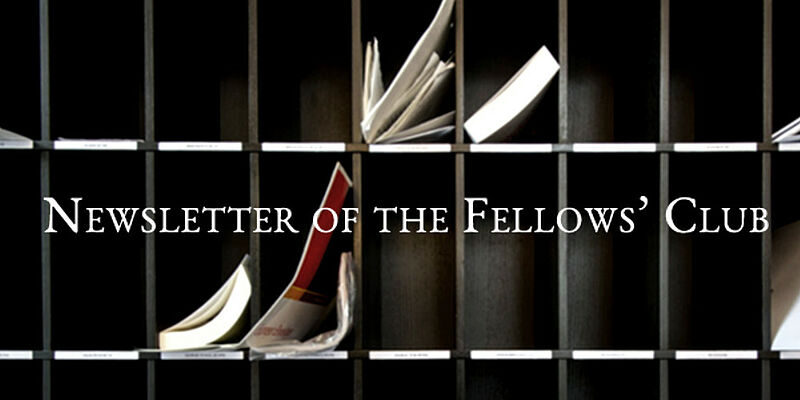
Editorial
The Wissenschaftskolleg has been called an ivory tower. But it is through its Fellows that the Kolleg is connected to the larger world and thus registers political tremors of the present day like a seismograph. On the one hand this can be seen in the topics studied by our Fellows this year – refugee policy, climate change, authoritarianism and political violence; on the other hand the international situation manifests itself in the very life and work of scholars who arrive at the Grunewald. The number of Fellows who are exposed to political pressure or persecution in their homelands is growing and the Kolleg is increasingly becoming not only a welcome break in scholars’ rigorous academic routine but a station of their indefinite exile. Intellectual freedom, which is the Wissenchaftskolleg’s hallmark, is anything but a lightsome idea for these scholars at risk.
Last year the Kolleg hosted a Fellow who was forced to make a precipitate return to the United States owing to Donald Trump’s travel ban. This year there are two scholars who are not in possession of valid passports and two who were summoned before courts in their respective homelands due to their intellectual and political engagement. One of these is the Polish historian Paweł Machcewicz, who was commissioned with creating a Museum for the History of the Second World War in his hometown of Gdańsk. After nine years of intensive labor invested in this project, in the spring of 2017 he was released from his duties by the Polish government. In November of last year a group of Fellows accompanied Paweł Machcewicz on his return to Gdańsk where he gave them a tour of his meanwhile partially reconfigured museum. You can read Paweł’s report of that trip in this issue of the newsletter, along with other interesting articles on the five-year success story of the College for Life Sciences as well as H. Glenn Penny’s dream for the future of the Humboldt Forum in Berlin.
The pressing themes of our time are also reflected in the Workshops of the Fellow Forum, for which former Fellows can apply for funding. Diana Mishkova’s workshop “Rethinking Post-Socialism” examined the termination of the liberal consensus that seemed to exist in the former Eastern Bloc for at least a short while after 1989.
And this year’s meeting of the Fellows’ Club (28-30 June 2018) will treat of a very apt subject in our present period of rapid change: “1918/2018: Global Events and National Commemorations.” We would be very pleased to see you all on this occasion.
Vera Kempa & Daniel Schönpflug
(on behalf of the managing committee of the Fellows’ Club)